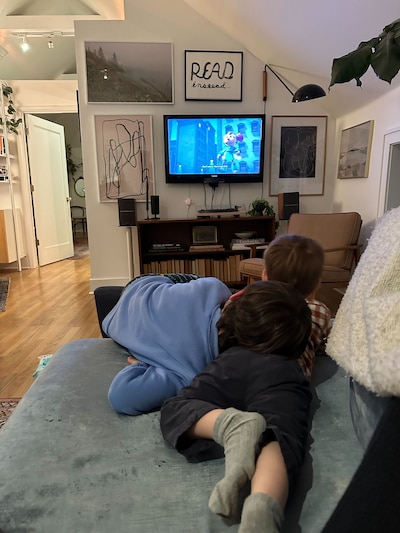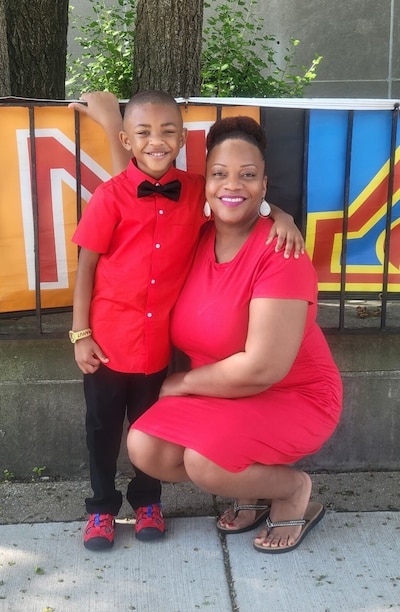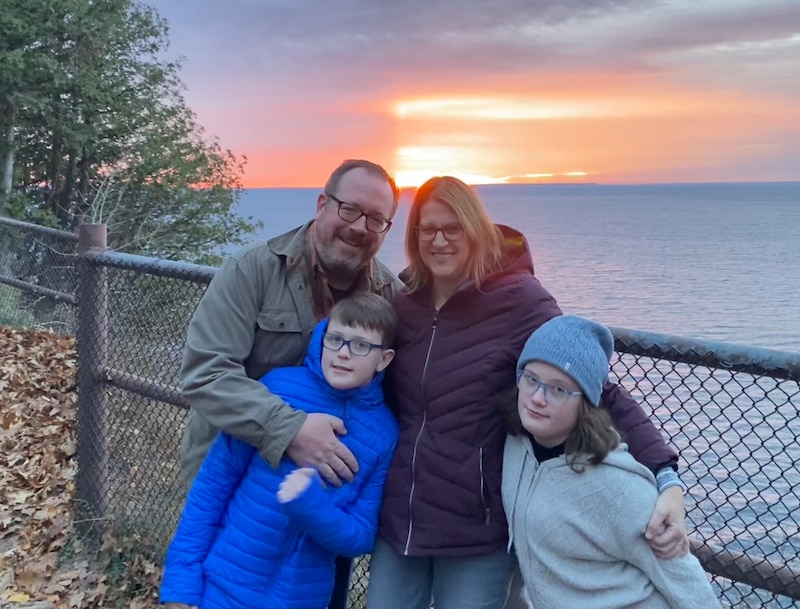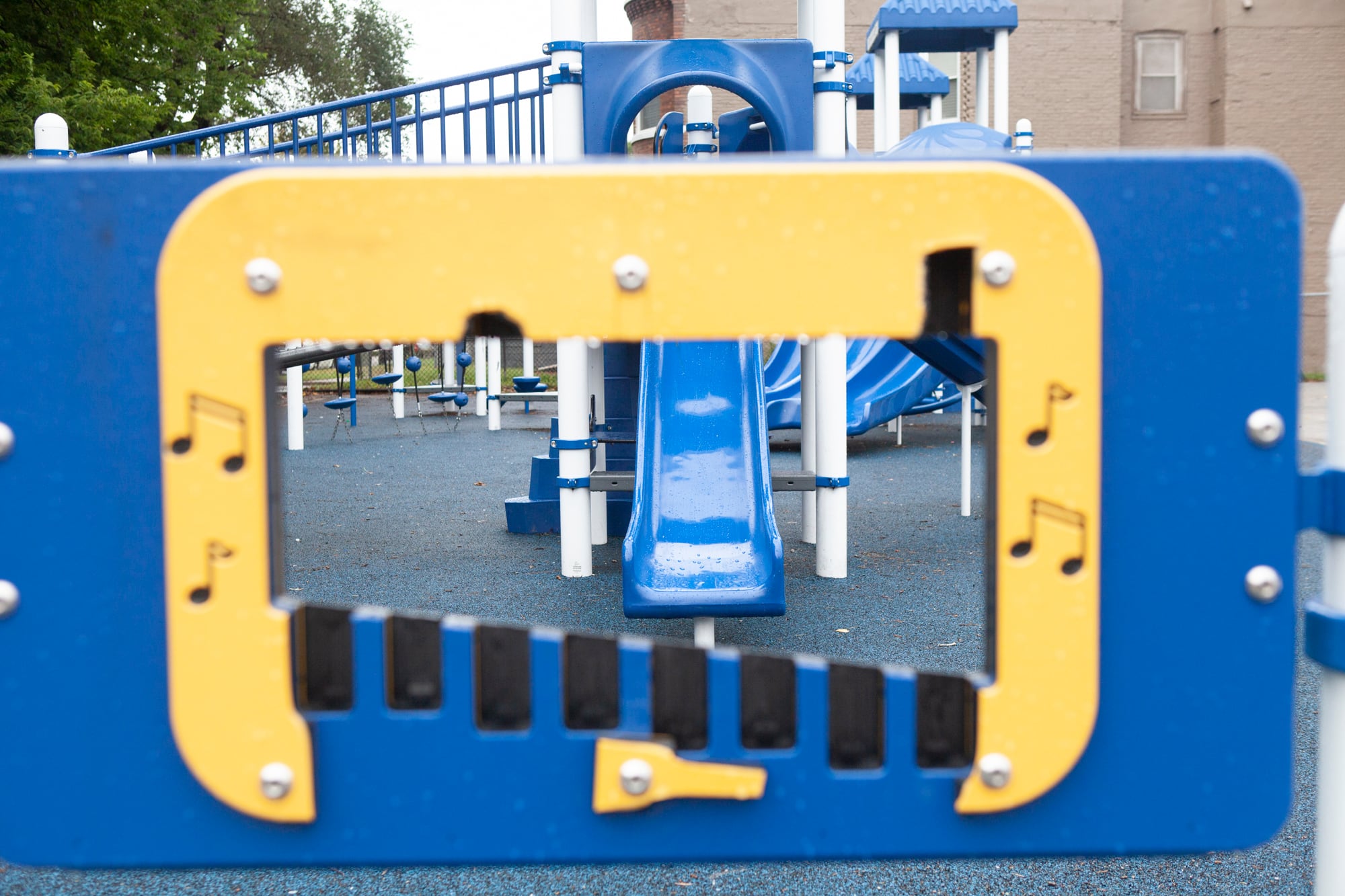Sign up for Chalkbeat Chicago’s free daily newsletter to keep up with the latest education news.
During the school year, many Chicago Public Schools students with disabilities receive additional support in classrooms, from one-on-one support from special education classroom assistants to services such as speech-language or occupational therapy.
That support system for children can disappear in the summer.
While many families struggle to find summer programs that cover the majority of the day and are lower in cost, parents who have children with disabilities say such options for their children are very few and hard to come by. Working parents with children who have disabilities often have to piece together private therapy sessions, half-day summer day camp for four to six hours, and other child care
Chicago Public Schools currently serves over 52,000 students with Individualized Education Programs, but only 9,019 students are eligible as of July 12 for the district’s summer program for these students, also known as Extended School Year.
For students who aren’t eligible for the Extended School Year program, families look to Chicago Park District’s summer day camps for kids between 6-12 years old and special recreational programs for children and teens between 8 and 17 years old. These programs run for about six weeks and can cost $160 or more, but financial aid is available for families. Many of these programs have limited spots and parents say they fill up quickly in the spring.
Chalkbeat talked to five Chicago Public School parents of children with disabilities about challenges they face finding summer programs for their children.
A costly summer camp with one-on-one support
Emily Metz’s son Will, a 7-year old with Fragile X Syndrome, a genetic disorder, and ADHD, is going to an Apache Day Camp in the city. The nonprofit organization offers summer programs across several sites throughout the city and the suburbs where children and teens participate in activities such as swimming and performance arts. Metz chose this program because it accepts children with disabilities and provides them with a paraprofessional.
But costs for Apache can run high. According to Metz, for all children it costs around $5,000, but for Metz it costs around $10,000 because Will needs a paraprofessional.

In previous years, Metz explored affordable options to get child care in the summer for Will. Her son is eligible for the Extended School Year through his Individualized Education Program. Metz said the program would not work for her because there’s no guarantee it will take place at his current school and Will feels very anxious when he has to change his environment and schedule.
In addition, the Extended School Year covers child care for the morning and early afternoon but not the full work day – a concern for Metz who works a 9 a.m. to 5 p.m. job. Metz tried sending Will to a special recreation program at the Chicago Park District but the process was “too complex.” She said it was hard to find which park offers special recreation programs and if those camps would offer an aide. There were also a few slots.
While Metz has Will in a summer camp now, she is worried about the lack of child care in August when summer camp ends and right before school starts. Right now, she and her husband are planning to take paid time off from work to take care of Will.
The lack of child care before school starts is “creating gaps for disabled kids and their families on top of the insurmountable challenge of just finding care for the majority of the summer,” Metz said.
Summer camp during the day, learning in the evening
Philoniese McCray has a 6-year-old son named Niles who has autism and is currently attending summer camp at Penny Lane Schools in Oak Lawn, a suburb south of Chicago. From Monday through Friday, Niles swims three times a week and takes a trip on Thursday.
The program costs McCray almost $300 a week.

“It wasn’t something that I had budgeted for,” she said, “but I mean, I really have no other choice if I want him to be in a safer environment and be monitored properly.”
If McCray had it her way, she would have enrolled her son in an academic enrichment program to help him keep up with his studies. But she couldn’t find anything that would work for her family.
In addition to camp, McCray sends Niles to speech-language therapy, teaches him at home, and enrolled him in a literacy program to teach him how to read.
Combining two camps to cover a full day
Abby Vlahos’ 7-year-old son, who has a genetic syndrome and autism, is splitting his summer between the Extended School Year program at his school, Beard Elementary School on the city’s northwest side, and a summer program for children with disabilities in Maine Township, a northern suburb of Chicago.
After school ended in June, Vlahos’ son started summer camp at Maine-Niles Association of Special Recreation, a 20-minute drive from her house, to ensure that her son had something to do over the summer. The overall cost for her family is about $2,000 for the whole summer. Vlahos said her family would have to pay around $6,000 if they decided to enroll him the entire summer. Since her son attends the Extended School Year program for six weeks, she doesn’t have to worry about sending him during that time.
Vlahos’ son started the Extended School Year program two weeks after the school year ended. He goes from Monday to Thursday between 9:15 a.m. to 1:15 p.m and to summer camp in the suburb on Fridays. On days when neither program is available, she and her husband divide child care and use babysitters when they are working.
Like Metz, Vlahos isn’t looking forward to the one week before the start of the new school year on Aug. 26 when they won’t have any child care until the school year begins.
Finding a special recreation program at a nearby park
Elizabeth Martel is a mother of three kids who are 12, 14, and 16. Her 12-year old daughter, who has intellectual disabilities, has been going to a special recreation program for children and teens with disabilities at Norwood Park every day between 9 a.m. to 3 p.m. Children can spend the summer doing art and crafts or swimming with peers their same age.
Martel says the program is perfect for her family because it is affordable — $164 for six weeks — and it’s only a 10-minute drive from their home.
Martel knows her family is lucky because only a few parks offer special recreation programs for children with disabilities and a small number of slots are available.
Martel met the park’s special recreation director when her daughter was 5. So, once her daughter turned 8, she was able to join the park’s program and has been going every summer since.
“The summer camp is wonderful. It’s pretty much exactly what it should be,” Martel said, but she wishes it was accessible to all families who have children with disabilities.
Driving to the suburbs every day
The Bryant family have 10-year-old fraternal twins, a boy and girl who both have autism, but they have different needs. Kim and Edward Bryant tried to get their son, who needs more support throughout the day like an aide, into a special recreation program at Norwood Park, but they weren’t as lucky as Martel.
Edward Bryant said Norwood Park’s special recreation program had a waitlist they had to sign up for in person. He ended up taking time off from work to sign his son up in mid-April. However, his son was placed on a waitlist.

It was unclear how the waitlist would work and they did not receive a call back on whether the Bryants’ son got in or not. Kim and Edward said the park district’s current process makes it “so impossible” for parents to navigate.
The Bryants decided to send their son back to the Maine-Niles Association of Special Recreation’s summer program from Monday to Thursday. The Bryants’ son has been attending this program in the northern suburbs of Chicago for the last two years and they like it because the program offers one-to-one support and has more staff to support each child. However, Edward Bryant said that if he could have sent his son to a program closer to home, instead of a 20 minute drive, he would have chosen that option.
The Bryants have to pay a $2,500 non-residential fee for the summer program for the entire summer. If they would have gotten into the city’s park district special recreation program, they would have paid about $160 for the summer.
Samantha Smylie is the state education reporter for Chalkbeat Chicago covering school districts across the state, legislation, special education and the state board of education. Contact Samantha at ssmylie@chalkbeat.org.






